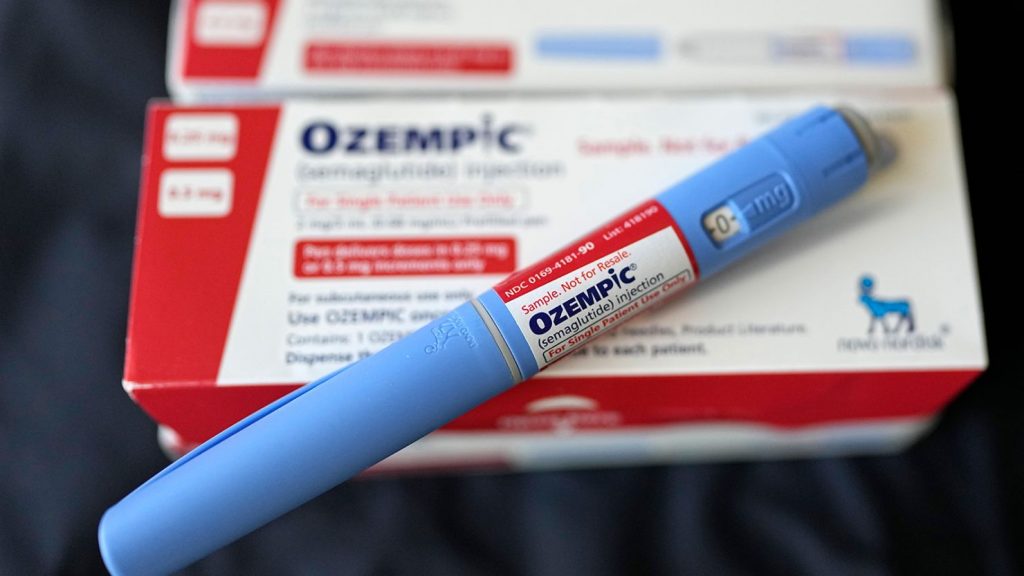Drugs like Ozempic, a medication that treats Type 2 diabetes, have gained notoriety in the media because of their increased off-label use for weight loss among celebrities.
Its active ingredient, semaglutide, mimics hormones that signal fullness to the brain after eating, causing the body to produce insulin and lower blood sugar. Unavailable in a generic form, semaglutide is branded as Ozempic, Wegovy and Rybelsus — all produced by Novo Nordisk, a multinational pharmaceutical company based in Denmark.
The most notable effect of semaglutide has been weight loss, leading to Wegovy’s federal approval in 2021 for chronic weight management. Researchers have continued to study other potential medical uses for the drug, and it was recently approved by the Food and Drug Administration to reduce the risks of heart problems in overweight adults.
Many celebrities and influencers have begun using semaglutide to lose weight, generating public interest in the drug and its side effects on TikTok and other social media platforms. Shortages of Wegovy, the only brand approved for this use, have risen because of the increased demand. Since it has a lower maximum dosage, Ozempic has not been approved for weight loss, though many have obtained it online or from doctors anyway, resulting in a shortage of it and similar drugs.
“Novo Nordisk does its best to ensure patients and health care providers are educated about the appropriate and responsible use of our medicines,” Marie Vedel Kessing, the company’s global media manager, wrote in an email. “While we recognize that some health care providers may be prescribing Ozempic for patients whose goal is to lose weight, we do not promote, suggest or encourage off-label use of our medicines and are committed to fully complying with all applicable laws and regulations in the promotion of our products.”
Side effects of Ozempic and Wegovy can include fatigue, dizziness, gastrointestinal issues and decreased appetite. Experts find the decrease in appetite particularly concerning because of its connection to behaviors associated with eating disorders. Michelle Gimbar, MS, RDN, CDN, an adjunct lecturer in Binghamton University’s health and wellness department, said these medications could affect the ability to eat intuitively.
“How these medications work is by telling your brain you are full and by slowing digestion,” Gimbar wrote in an email. “As a dietitian who promotes intuitive eating, using this medication for weight loss may have a negative impact on understanding your own hunger and fullness cues. I haven’t seen it much in the literature yet, but knowing how the medication works could lead to skipping meals. Additionally, much of the literature does show that weight regain is likely once the medication is stopped if lifestyle changes have not been made.”
Controversy surrounding Ozempic has also stemmed from social media influencers’ promotion of the drug. On TikTok and other platforms, many have described their experiences, highlighting dramatic weight-loss effects. While TikTok allows those interested in the medication to hear real users’ experiences, many worry that its promotion as a seemingly miracle weight-loss remedy can encourage participation in “diet trends” for young audiences.
Lina Begdache, Ph.D., RDN, CDN, CNS-S, FAND, an associate professor in the health and wellness department, emphasized exercising caution when it comes to new drugs, especially when research on long-term effects has not been completed.
“Back in 1990, Ephedra-based drugs were the miracle weight loss medicine that even doctors prescribed to their patients,” Bedgache wrote in an email. “It took years to learn their negative effects on the heart, blood pressure and mental health among others. Many still suffer from the permanent damage Ephedra has inflicted. Today, Ephedra is a banned substance by the FDA.”
As researchers look to determine other possible treatment opportunities for the drug for several different diseases, semaglutide-based drugs have only started to make what will likely be a lasting impact on modern medicine. But when it comes to its online reputation as a weight-loss fix-all, experts emphasize the importance of careful research and discourage use when not medically necessary.
“Be a smart consumer, and always ask yourself the question — what are the credentials of the person giving the advice,” Bedagche wrote. “Influencers are paid agents to promote products, so be careful with what information they are spreading. Successful personal stories do not mean that everyone will experience the same success. Always research facts and use credible sources — stay away from blogs — to learn more about health facts.”



